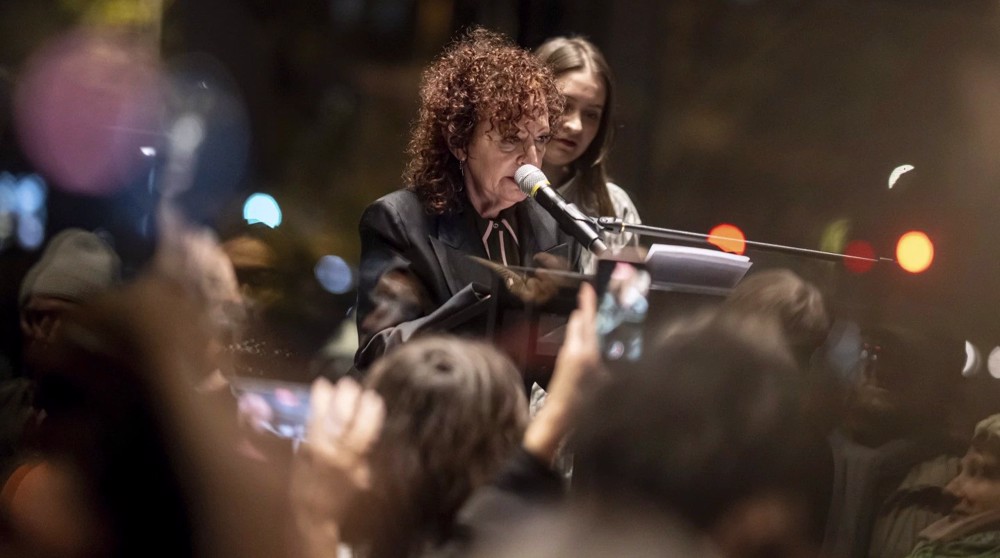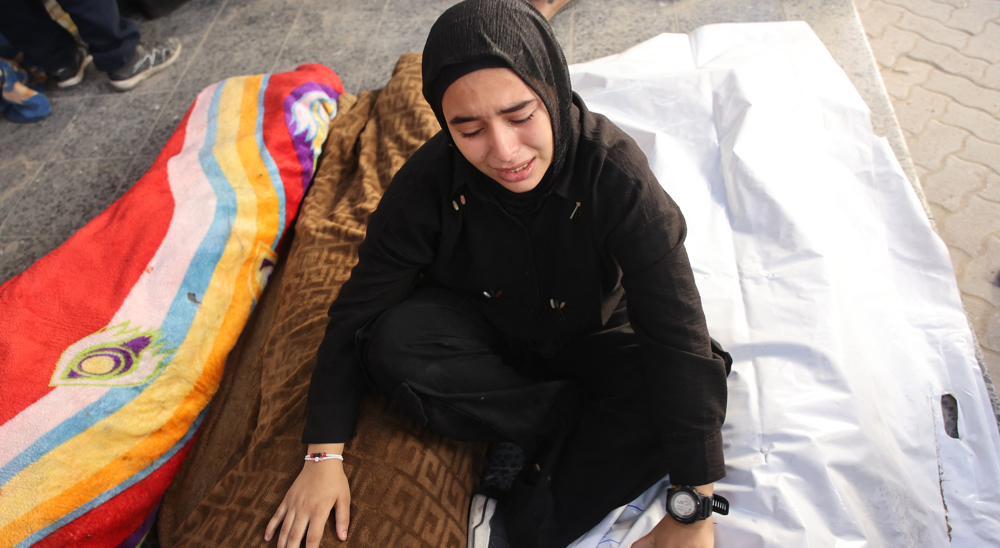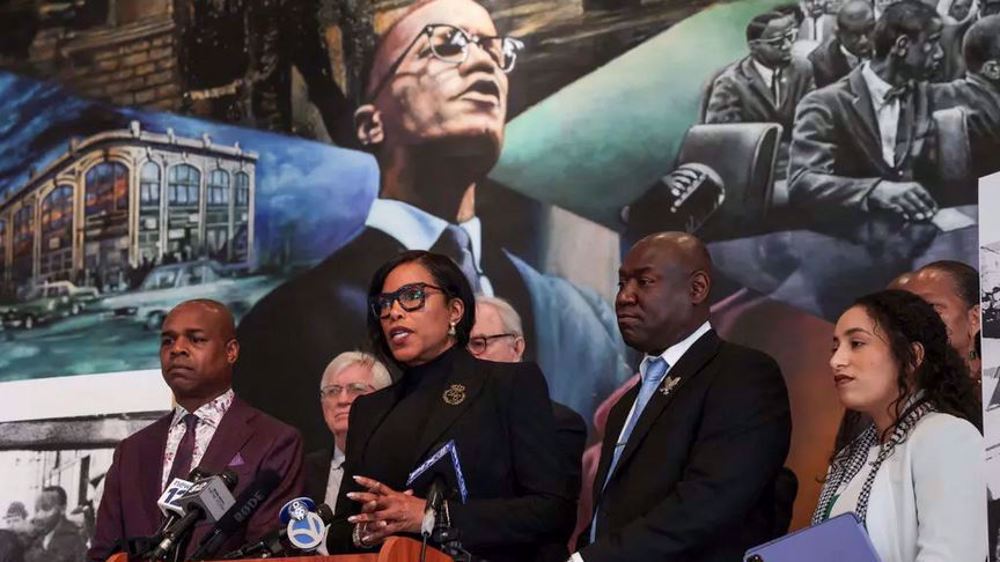Separated by Trump's travel ban, Iranian families reunite at border library
This year, as migrant families from Latin America were separated at the US southern border, dozens of Iranian families have reunited on the northern one at a unique library.
Drawn by word-of-mouth and a smattering of social media posts, they have come to the geopolitical gray zone at the rural frontier library, located at once in Derby Line, Vermont, and Stanstead, Quebec.
Recounting her journey from New York City to a tiny town in northern Vermont, Iranian student Shirin Estahbanati said she cried at the thought of seeing her father for the first time in nearly three years. Since then, he had suffered a heart attack, and she hadn't dared leave America to comfort him.
Estahbanati, like many Iranian students in the United States, has a single-entry visa and can't leave the country without risking that she won't be allowed back in. And her parents, as Iranian citizens, are blocked by US President Donald Trump's travel ban from visiting her in the United States.
She recalled meeting them at the Haskell Free Library and Opera House.
"I was just hugging my parents, I was just thinking, I wish I could stop all clocks, all over the world," Estahbanati said of the reunion.
She said it was especially hard seeing her father.
"I thought, even he's [gotten] shorter than the time I left. I don't know. The time he met me, he started smelling me. And he was like, 'I missed your smell.'," Estahbanati told Reuters.
"It just gives me a really good feeling that I have the opportunity to see them," Estahbanati said, but noted "the existence of the library is a really good thing, but it's not a solution I think for all [the] pressure we have."
The library is vulnerable to pressure from authorities because although the building sits on American and Canadian land, its entrance is on the US side. US officials allow staff and visitors from Canada to walk a few yards onto American soil without going through an official port of entry.
On a Saturday in early November, two Iranian families met at the library, chatting quietly in its two reading rooms. The normal business of the library continued amid the reunions: Parents and children streamed in and out to return books and browse the stacks. Teenagers accessed the internet on library computers and leafed through its DVD collection.
The Iranians were mostly oblivious to signs stating in English and French that, by order of the library's board of trustees, "family gatherings are not permitted."
The Trump administration says its travel ban is necessary to protect the United States, arguing that the countries in question - Iran, Libya, North Korea, Somalia, Syria, Yemen and, to a lesser extent, Venezuela - don't share enough information that would confirm their citizens are not a threat.
Officials with US Customs and Border Protection, which oversees the Border Patrol, declined a request for an interview about the library. A spokesman, Michael McCarthy, declined to comment on the families' accounts of their interactions with US border officials or on the library staff member's allegation that US and Canadian authorities have threatened to close it.
"US Border Patrol works closely with our Canadian counterparts, as well as the local community, to prevent illegal cross border activity," McCarthy said in a statement.
Erique Gasse, a spokesman for the Royal Canadian Mounted Police, Canada's federal law enforcement agency, denied that the agency had threatened to shut the library down. "This is not the way we talk," he said. "We don't do that."
He insisted the RCMP doesn't patrol the area regularly and only goes there when called.
(Source: Reuters)
From cradle to chaos: My infant son’s journey through war and displacement
Lebanon condemns Israeli attack on UN peacekeepers
‘Everyone here is at risk’: Injured Kamal Adwan Hospital director’s poignant message
VIDEO | 'We will rebuild a thousand times’
Ex-Israeli war minister Gallant to head to US despite ICC arrest warrant
Iran’s foreign minister in Portugal to attend 10th UNAOC Global Forum
VIDEO | Israel puts Beirut under back-to-back assaults as Hezbollah says Netanyahu won’t succeed
A siege within siege: 130,000 children under 10 trapped in northern Gaza









 This makes it easy to access the Press TV website
This makes it easy to access the Press TV website